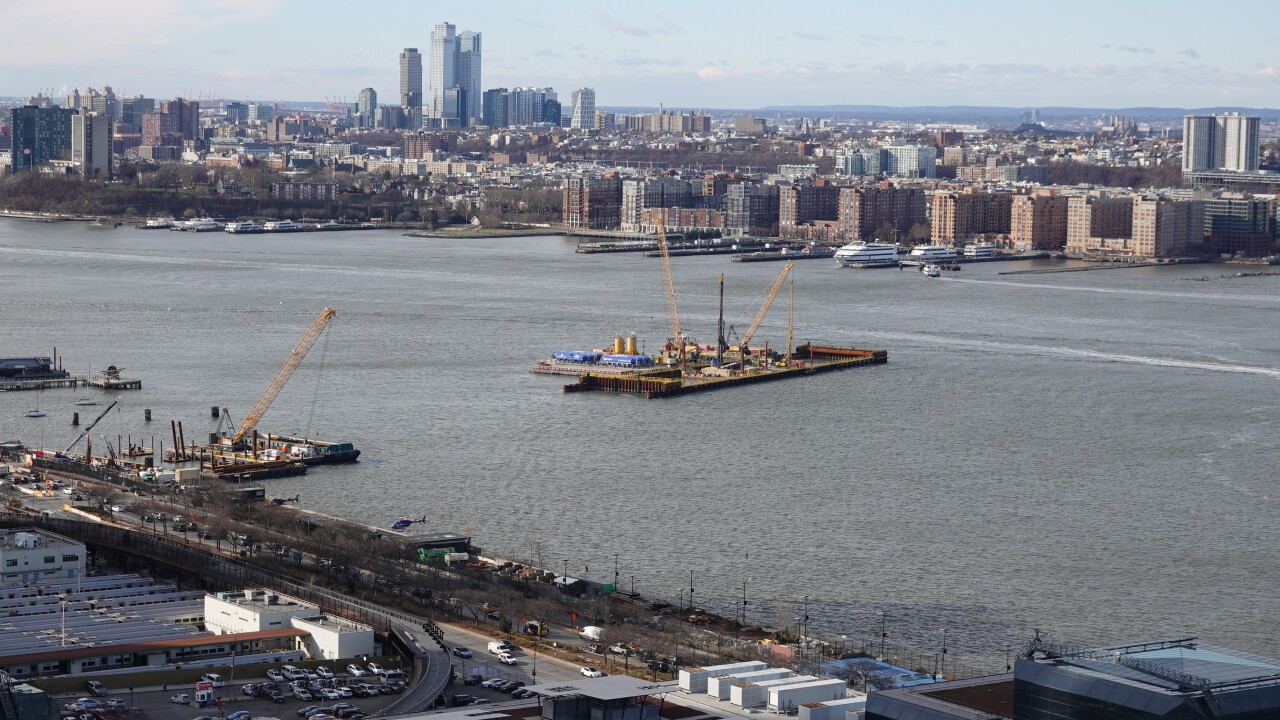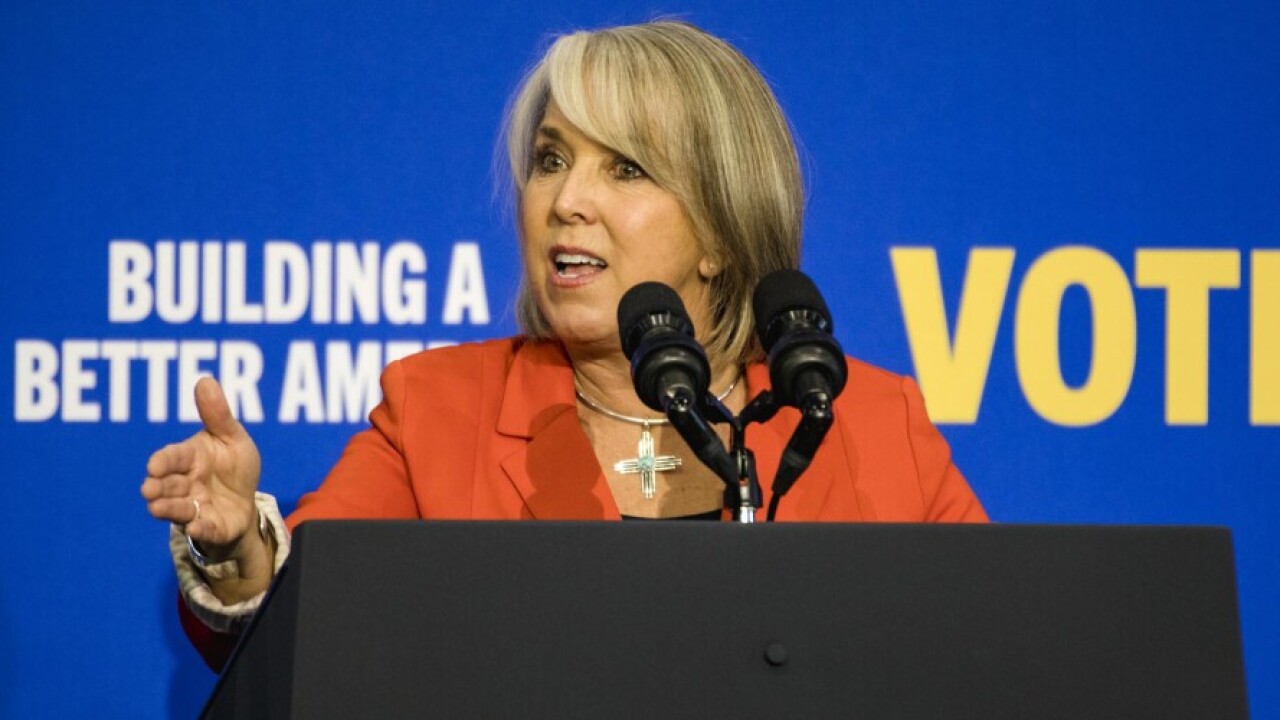
CHICAGO — Chicago dropped a controversial provision mandating large property tax hikes to fund at least half of its share of increased pension contributions to get legislation overhauling two of its four pension fund back on track.
The amended legislation filed late Monday takes state lawmakers and Gov. Pat Quinn off the hook for any property tax hike to fund higher city contributions and puts the onus of approving hikes on the City Council whose members face re-election next year.
"There is no additional pension levy under this amendment. Any decisions on revenue are left up to the city's discretion under the current traditional levy structure," the city said in a statement.
Mayor Rahm Emanuel's plan to shore up the city's laborers' and municipal funds through higher city and employee contributions and benefit cuts only surfaced last week but it moved quickly through committee before stalling over the property tax mandate.
The original legislation filed as an amendment to Senate Bill 1922 by House Speaker Michael Madigan, D-Chicago, authorized a series of property tax increases over the next five years to raise $750 million with the city payment then reaching an actuarially required contribution level.
The increases would be imposed through a special pension stabilization levy and would raise the city's current levy by $250 million at the end of the five years. Under the original legislation, the city would be required to fund at least 50% of its increased contributions through the property tax levy hike. The city would tap several enterprise funds and budgetary savings to cover the remainder.
The General Assembly's Republicans and some Democrats balked at being asked to shoulder the burden of approving the hikes and withheld their support.
Quinn refused Friday to say whether he would sign the legislation if it passed and then on Monday sealed its fate by suggesting it would "gouge" homeowners. "No can do. We are not going to go that way," Quinn said when asked about the legislation during a public appearance.
In hopes of salvaging the plan, the legislation was later amended to eliminate any reference to tax increases leaving it up to the city to decide how to fund its higher contributions.
"Working with legislative leaders, bill sponsors, the governor, and our partners in labor, we have addressed their concerns and can now move forward to save the retirements of nearly 60,000 city workers and retirees in Chicago," Emanuel said. "This plan will secure these pension funds while ensuring the taxpayers don't have to shoulder the burden alone."
The city may fund pensions through its traditional, existing levy or through other revenue sources as allowed under current law, without any additional state-mandate. "The city's required annual contribution to the fund may be paid with any available funds and shall be paid by the city to the city treasurer," the amended version reads.
The amended version strengthen a provision allowing the state to withhold city aid, a move designed to ease unions concerns as they had pushed for the property tax mandate because it represents a stable source of revenue. The legislation still includes a provision that gives unions the right to sue should the city fall short on its required contribution levels.
The amended version also eases the impact of the cost-of-living adjustment cuts on low come retirees, a change designed to address concerns raised by members of the city's African American caucus.
The legislation's backers stressed Monday that the revised plan now more closely resembles reforms previously approved for the Chicago Park District and Metropolitan Water Reclamation District of Greater Chicago.
Moody's Investor Service on Monday labeled the legislation a modest credit positive but warned it's not a panacea that will solve all of the city's pension woes.
"It is a step forward in the arduous process of tackling the city's massive and growing unfunded pension liabilities," Moody's wrote in the commentary Monday. "Still, even with reform, pensions will continue to weigh heavily on Chicago's credit quality."
Moody's hit the city with a three notch downgrade last year largely over the size of its unfunded obligations — $19.5 billion — and lack of a plan to deal with a $600 million spike in payments owed in 2015 for its public safety funds.
Moody's then dropped the city out of the A category to Baa1 and assigned a negative outlook to its general obligation and sales tax bonds earlier this year. When Moody's applies its adjusted net pension liability calculation to the city's position, the figure rises to $32 billion, a figure eight times the city's 2012 operating revenues and the highest among local governments rated by Moody's.
The laborers and municipal funds account for $13.8 billion of Moody's ANPL while the city's fire and police funds account for $18.2 billion.
The latest downgrade escalated pressure on the city and unions to reach agreement on a pension overhaul. Most of the unions representing employees covered by the laborers and municipal funds have agreed to the package but several have not.
The two funds are headed to insolvency in the next decade putting "extreme budget stress" on the city if it is "forced to pay annuitants directly from operating revenues," Moody's said.
The proposed reforms reduce the likelihood of insolvency for the two funds by slowing the growth rate of the unfunded liabilities, Moody's said. The proposal would cut benefits, including cost of living adjustments, and raise city and employee contributions with the aim of reaching a 90% funded ratio in 2055.
"If implemented, the legislation would immediately reduce the Municipal and Laborer plans' UAAL," Moody's said. "However, we expect that the UAAL would then escalate for a number of years before declining." If annual investment returns fall short of the assumed 7.5%, the risk of plan insolvency could return.
Other hurdles also remain. In addition to winning passage by lawmakers, litigation challenging the constitutionality of the changes is expected from those unions opposed to the package.
The plan also does not address the 2015 spike in police and fire contributions under a prior state mandate aimed at shoring up those funds. "The requirement presents a formidable budget pressure for Chicago," Moody's wrote.
In an effort to kickstart support for the legislation late Monday, the city dropped the references in the legislation that mandate 50% of its increased payments come from property taxes after comments from Gov. Pat Quinn earlier in the day that made clear his opposition to the plan's heavy reliance on property taxes. An amendment dropping the language was filed last Monday.
"Working with legislative leaders, bill sponsors, the governor, and our partners in labor, we have addressed their concerns and can now move forward to save the retirements of nearly 60,000 city workers and retirees in Chicago," Emanuel said in a statement. "I reject the false choice between allowing the pension funds to go belly up, delivering thousands of pink slips to city workers, or enacting a massive property tax increase. This plan will secure these pension funds while ensuring the taxpayers don't have to shoulder the burden alone."





